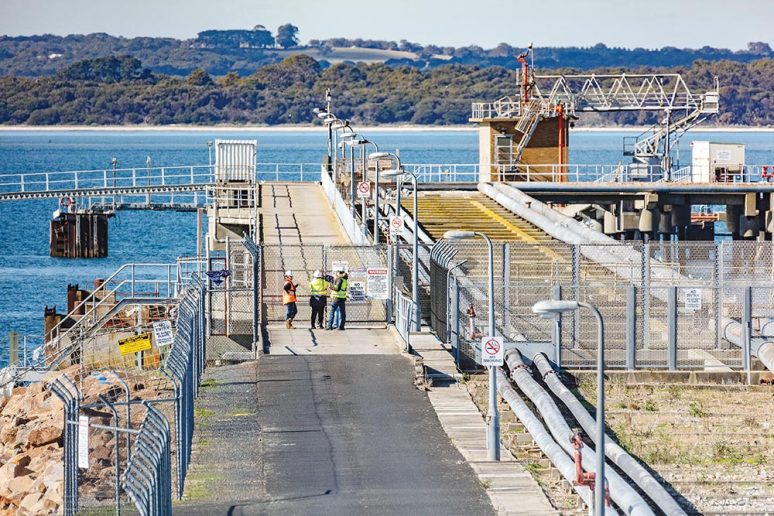By Cat Nadel
AGL will have to do more to convince the Western Port community if it wants us to believe that a 300 metre, toxic gas import terminal at Crib Point is either safe or necessary.
Claims that daily dumping of 450,000,000 litres of cold and chlorinated water will have no impact on the bay’s marine environment are misleading, unproven and designed only to benefit AGL’s business interests.
A recent Australian Marine Ecology report commissioned by Environment Victoria and the Victorian National Parks Association uncovered serious omissions and inaccuracies in AGL’s “experts reports.” It found AGL’s report on chlorine release failed to consider the impacts of secondary toxicants – poisons with the potential for chronic, long-term and irreversible impacts on the ecosystem.
Due to the extra energy consumed in liquefying, shipping and re-gasifying gas that would come from AGL’s project has already been shown to be 20 per cent more polluting in terms of greenhouse gases, than gas sourced in Victoria.
Worse still, while Victoria has a ban on dangerous fracking, this terminal could see us importing fracked gas from interstate and overseas.
There is absolutely no reason for a forward thinking clean energy state like Victoria to be lured into an expensive, polluting trap like the one being set here by AGL.
AGL’s suggestion that heating up the liquefied gas could be done using gas from the ship rather than water from the bay is a false and dangerous choice. In a time when even coal giants like BHP are asking for a price to be put on carbon emissions, AGL should not be asking the community to make a choice between damaging Western Port and increasing pollution that further damages our climate.
The people of Western Port know climate change is a threat to their area. Every day we see the reality that is described in last year’s report from the Department of Environment, Land, Water and Planning, identifying climate change as a major threat facing our internationally recognised wetland ecosystem.
AGL’s “experts” have failed to mention this report, or in fact any scientific literature released on Westernport Bay in the last five years.
It is this kind of biased and selective investigation that further justifies the need for a fully independent and rigorous assessment such as the environment effects statement (EES), which has now been required by the state government.
Environmentally, this project is a massive concern, but it doesn’t stack up from a gas market perspective either.
Australia doesn’t have a gas shortage; in fact, we don’t even have a real gas market – we have a broken gas cartel.
We export two thirds of our gas. AGL’s project would not solve this problem. Instead, it would have us buying back gas at a cost that wouldn’t be any cheaper for struggling Victorian businesses or households.
What Victorians and the Western Port community needs is an urgent transition to an economy powered by 100 per cent cheap, clean, renewable energy. This will benefit our communities, our environment and allow us to meet the climate targets needed to prevent catastrophic global warming.
AGL should be part of the solution to bringing online more wind, solar and battery storage, not charging ahead with a dirty and dangerous gas project that could lock us into polluting energy for another 20 or more years.
The Western Port community refuses to be deceived by a billion dollar company rorting the system and aiming to profit off our community, our environment and our climate. AGL’s project is damaging, unnecessary and will be fiercely opposed.
*Cat Nadel is a climate campaigner at Environment Victoria
First published in the Southern Peninsula News – 30 October 2018




